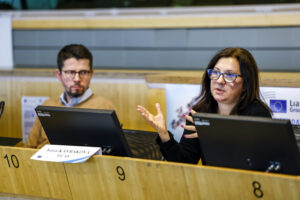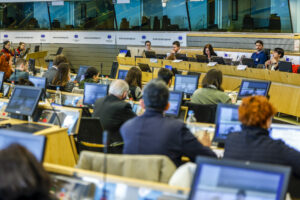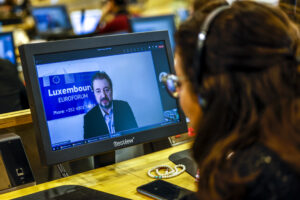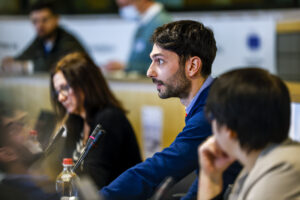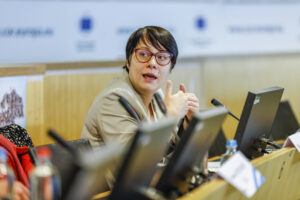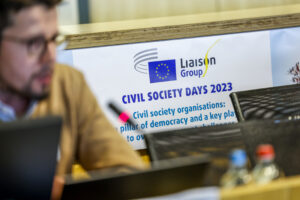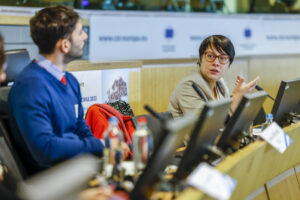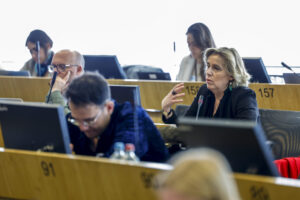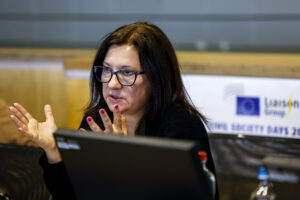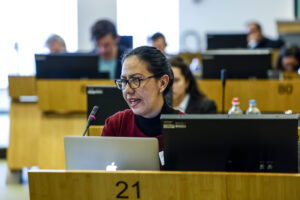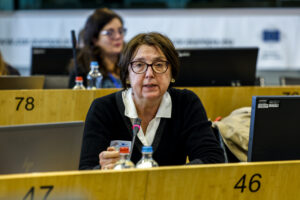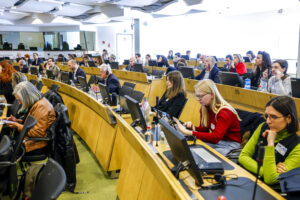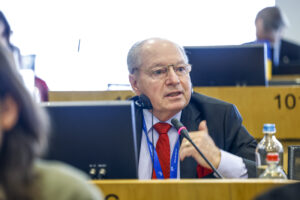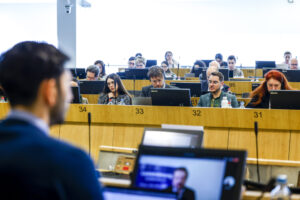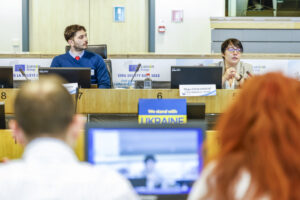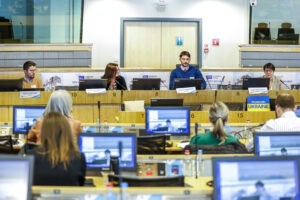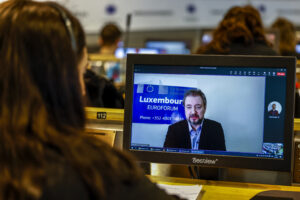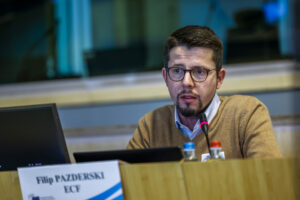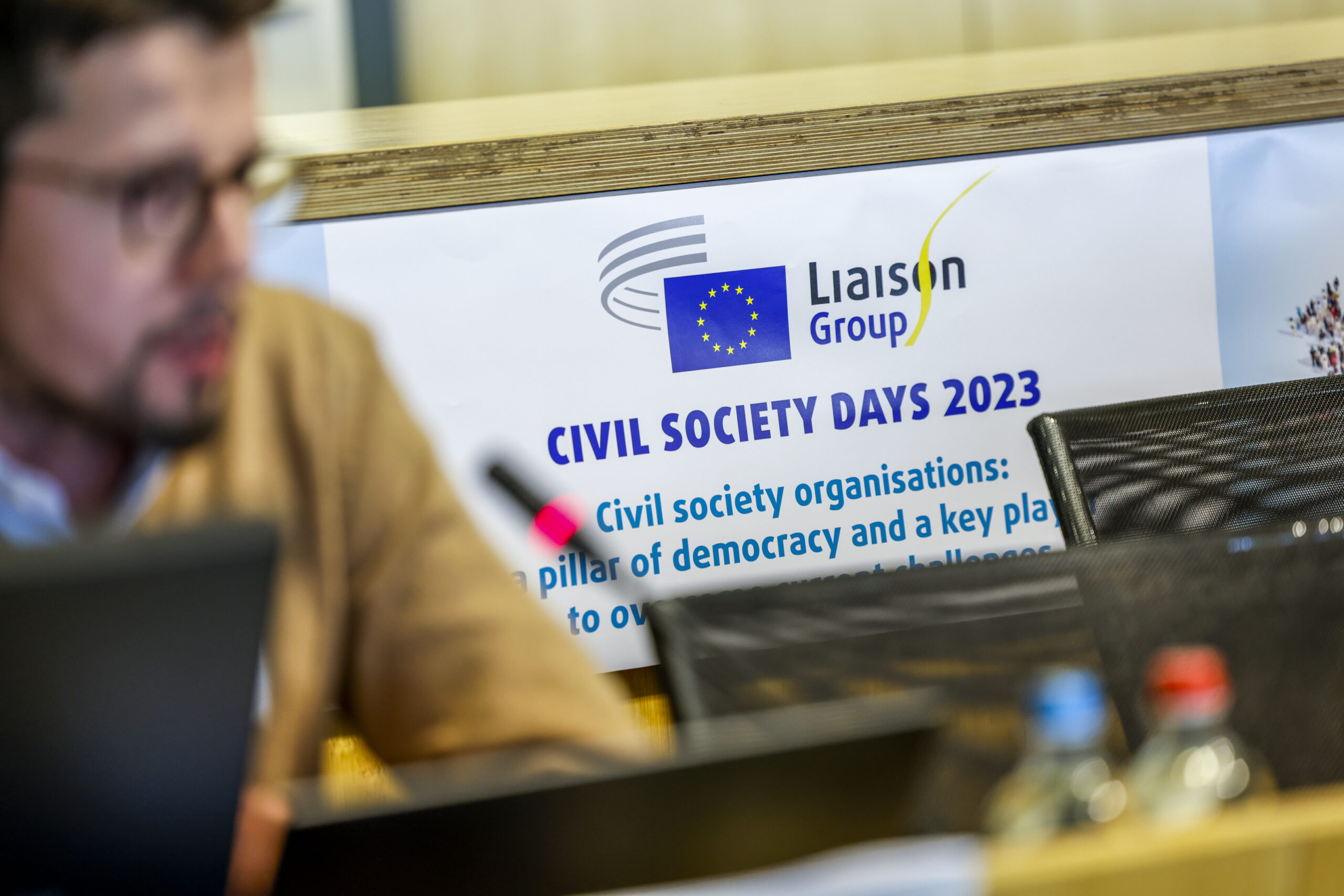
Continuing the tradition of ECAS to be a regular and active participant at the European Economic and Social Committee’s annual Civil Society Days, the 2023 edition of the event hosted our workshop on civil society resilience against shrinking democratic space in Central and Eastern Europe. The discussion was organised in cooperation with the EESC ad hoc Group on Fundamental Rights and the Rule of Law.
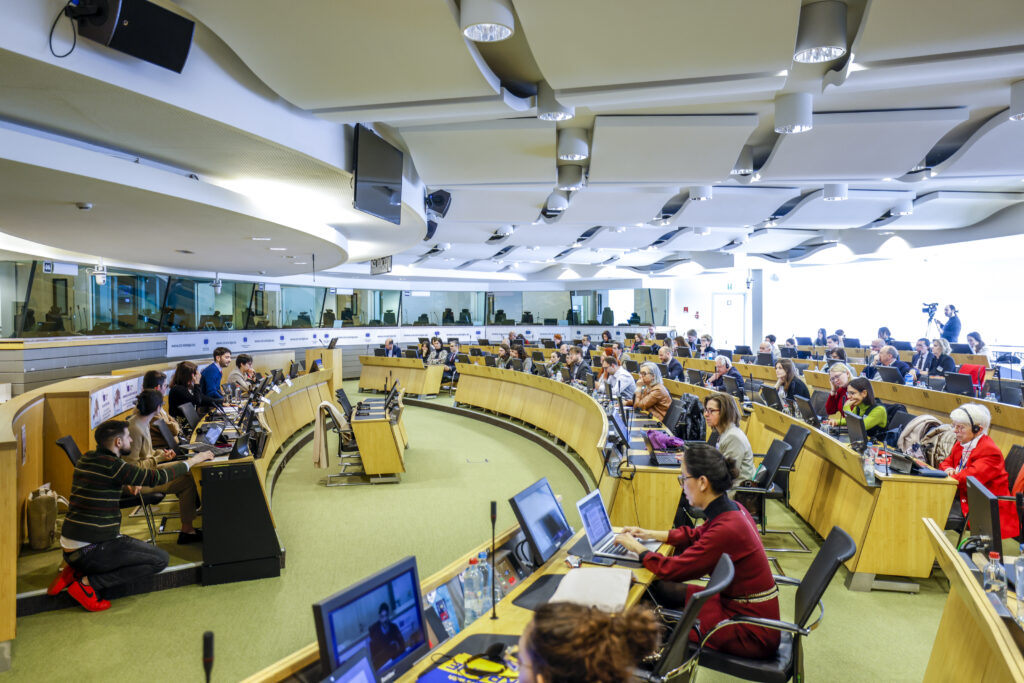
The topic of the event was chosen due to the deteriorating democratic conditions in CEE, where, in recent years, deliberate efforts by state actors have limited the democratic space available for civil society organizations. These efforts include discrediting actions, disinformation attacks, as well as legal, administrative, and fiscal pressures. These threats, combined with a decline in the rule of law and increasing media interest, make it difficult for CSOs to participate in democratic processes and defend fundamental European rights. Of course, this phenomenon is not isolated to CEE– this part of Europe, though, has weaker democratic traditions and is put under increasing outside geopolitical pressure due to the war in Ukraine. These factors make it easier and imperative to find working solutions in the region specifically and Europe as a whole.
This workshop explored how civil society could effectively respond to and counteract threats and attacks by state, state-linked, or state-owned actors.
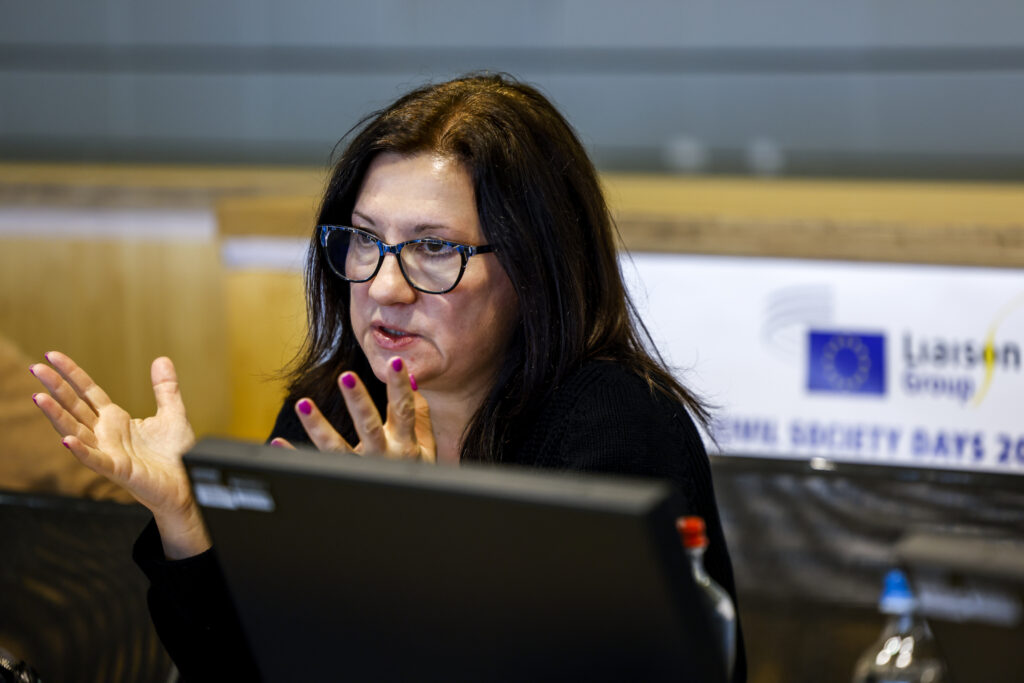
The event began with a keynote speech by Assya Kavrakova, Executive Director of the European Citizen Action Service, with nearly 30 years of experience in civil society both in CEE and now in Brussels. The passionate speech set the stage for the rest of the event. Ms. Kavrakova shared the results of a recent report which showed that democratic progress made in Eastern Europe had been wiped out and is back to Cold War levels. She continued by discussing the wave of authocratisation that is evident EU-wide and the reasons behind it, such as toxic polarization and personal frustration that leads people to support anti-democratic platforms. She explored more closely the phenomenon of disinformation that plagues CEE societies and the steps taken by ECAS to counter that.
A panel discussion then brought together three representatives from CSOs and academia to address several important questions, such as whether there was a pattern across CEE countries of governments targeting organizations in specific fields (e.g. education or non-discrimination) and, if so, why. Additionally, the panel discussed if there were warning signs that could alert CSOs to impending threats or harassment and what tools and approaches could be used to counteract attacks (e.g. on social or traditional media or legally) when they occur. The speakers were as follows:
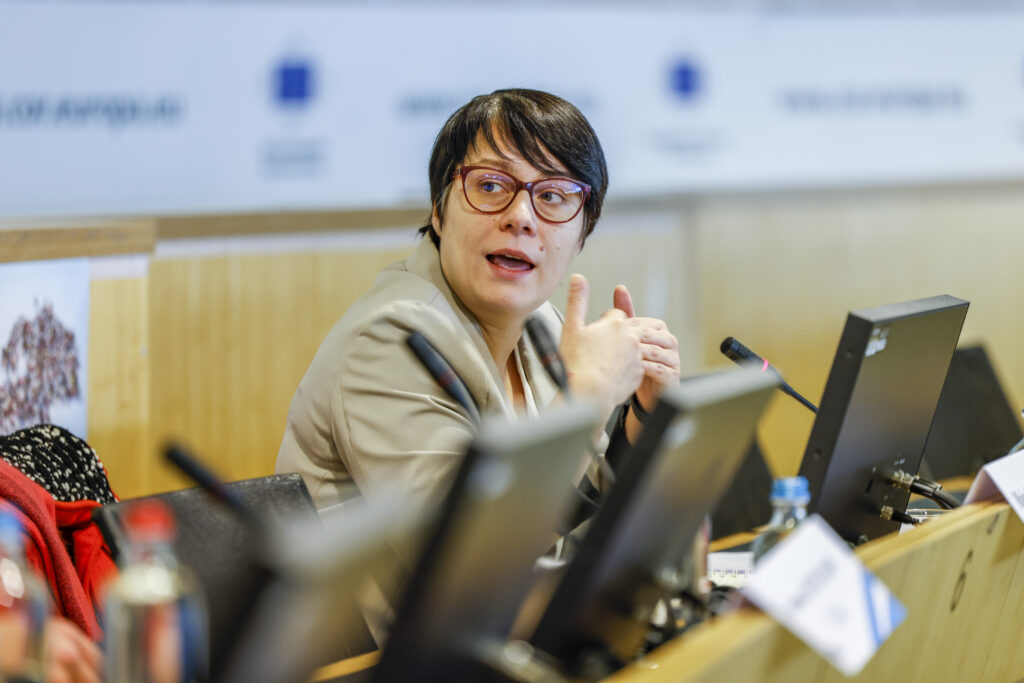
Maja Stojanovic, activist for the protection of human rights and Executive Director of Citizen’s Association for Democracy and Civic Education – Civic Initiatives, founded in 1996. Maja Stojanović is the president of the Board of Directors of the Human Rights and Democracy House from Belgrade and a member of the Europe Team, an expert group for promotion of European integrations in Serbia.
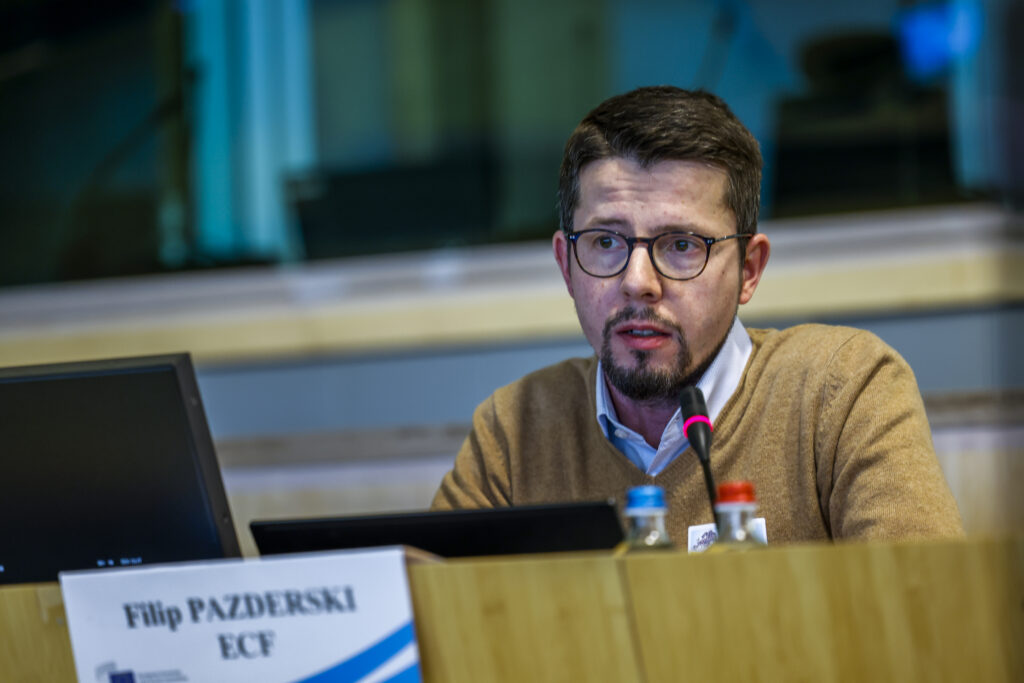
Filip Pazderski, a Senior Policy Analyst and Director of the Democracy and Civil Society Program of the Institute of Public Affairs in Warsaw. He’s active in the fields of civil society, civic education, public participation, quality of democracy and elections. He is vice-president of the European Civic Forum.
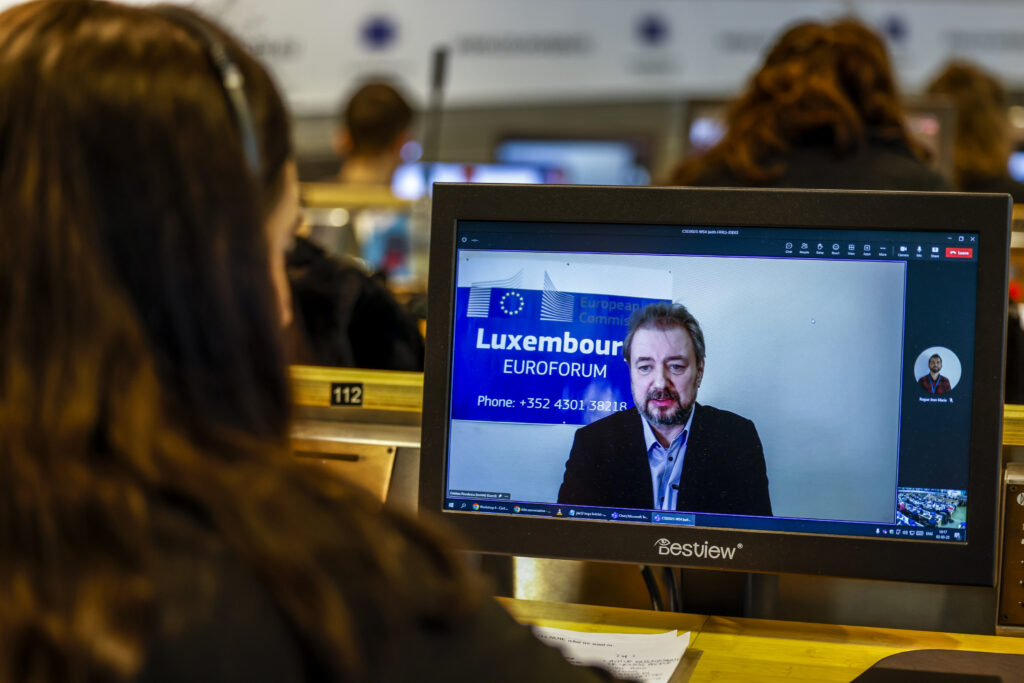
Cristian Pirvulescu, a Romanian Member of the European Economic and Social Committee and President of the EESC’s Fundamental Rights and Rule of Law Group. He is a Professor at the Faculty of Political Science, National School of Political Studies and Administration in Bucharest.
The workshop proved a fruitful place for discussion, and an engaged and knowledgeable audience provided for interesting questions and comments. Through the three panels, the speakers identified a number of problems and opportunities for the civil society sector.
Firstly, the war in Ukraine has been a turning point for millions of individuals and is a turning point in European and world history. On top of this, it can be a pivotal point for highlighting the need for and the benefit of a healthy and engaged civil society. Harnessing the heightened public focus, this is the time to push for better safeguards for human rights, democracy, and CSOs’ central place in the democratic process – all as a counterweight to authoritarianism and aggression. The war is also a belated reminder to connect more strongly to civil society beyond the EU, transferring knowledge in both directions and, by virtue of increased expertise, finding tailor-made solutions for the problems organisations are facing.
Furthermore, civil society facing attacks from the state or state-affiliated actors requires capacity-building and support in the field of effective and impactful communication and campaigning. The rationale for this is that changing public perception and building trust towards CSOs and their activities is the only way to secure their place in the democratic process in a state with shrinking civic space.
Continuing the topic, trust must be rebuilt not only with regard to citizens but also between funders, institutions and organisations in order to decrease the administrative burden that comes with financing opportunities. Considering the struggle between opposing values in many countries, organisations who are defending illiberal ideologies are often unaccountable about their funding and can financially overpower and shout down human rights defenders, watchdogs, and other critical voices. Targeted, secure and accessible financing must be available for civil society to defend European rights and values without sacrificing accountability through increased trust and lower bureaucracy.
Full recording of the workshop
Photos
All images and videos of this post under ©EU 2023 – source: EESC
